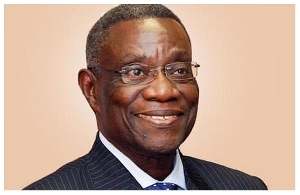After an inauspicious start, dogged by system failures, import processing delays and angry protests by clearing and forwarding agents at both of Ghana’s sea ports and some land border posts as well, the newly adopted Integrated Customs Management System, (ICUMS), operated by Ghana Link in collaboration with the Ghana Revenue Authority is finally paying off.
Over the first three months of its full application, the new trade facilitation platform generated GH¢3.65 billion in revenues for the state.
This is GH¢825.88 million higher than the GH¢2.82 billion generated during the corresponding period of 2019 by the recently abrogated national single window system operated by the partnership of GCNet and West Blue Consulting.
The increase appears to have justified the faith shown in the new platform expressed by its proponents in government led by Senior Minister, Yaw Osafo-Maafo who held firm to their confidence in its ability to better the revenue generation performance of the old platform even when it was coming under intense criticism from virtually every stakeholder group except for government itself.
To be sure, the rollout of the ICUMS platform was worrying as import documentation delays and outright failures were rife, this culminating at a stage in a public demonstration by frustrated clearing and forwarding agents in Takoradi.
Opposition to the platform intensified further when it was revealed that Ghana Link’s wholly owned subsidiary, Africa Link had failed to establish a working similar trade facilitation platform in neighbouring Sierra Leone and consequently had seen its contract with that country’s government abrogated.
Indeed, Imani Africa a highly reputed public policy think tank even petitioned President Nana Akufo-Addo to suspend the implementation of the ICUMS platform because of its many shortcomings which were threatening government’s revenue streams.
However concerted troubleshooting and remedial action by Ghana Link, its South Korean technical partners and the GRA itself has since turned the dire situation around completely.
The revenue items comprise: import duties and levies, import VAT, import NHIL, import GET Fund levy and petroleum tax.
The feat is all the more impressive considering that the value of imports has declined significantly this year, compared with last year, because of supply chain disruptions brought about by the impact of COVID 19.
The Commissioner of the Customs Division of GRA, Col Kwadwo Damoah (rtd) enthuses that if the normal economic circumstances were prevailing, the revenue increase generated by the new platform would have been even bigger.
Just as importantly, the problems faced by importers and their clearing agents have rescinded dramatically. Although occasional problems still arise clearing agents affirm that these are within the normal parameters experienced under the old system.
The next challenge is the implementation of phase two of the platform’s rollout which will involve hooking it up to the West African Customs Administration transit system.
Here, Ghana is lagging behind most other countries in the sub region who are applying the ECOWAS Common Tariff schedule, but it is now expected that the hook-up will be completed before the end of this year.
Business News of Thursday, 15 October 2020
Source: goldstreetbusiness.com

![Tema Port [File Photo] Tema Port [File Photo]](https://cdn.ghanaweb.com/imagelib/pics/886/88656649.295.jpg)











